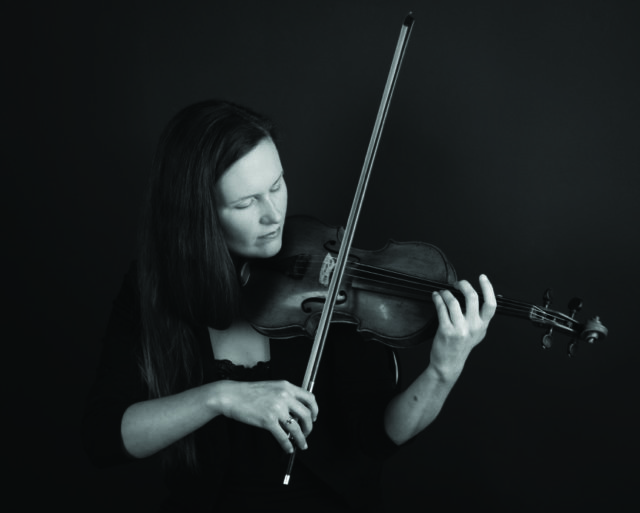
Colorado MahlerFest is growing.
This year, the 32nd edition of the festival will feature more repertoire than ever, including two separate orchestra programs in Macky Auditorium on Saturday and Sunday of the festival weekend (May 18–19), and a chamber music concert Friday evening (May 17).
The Festival started in Boulder in 1988 as an opportunity to hear Mahler’s symphonies, which were then not often performed. For many years the orchestra program, featuring one of the symphonies, was performed Saturday and Sunday. That has now changed, with a chamber orchestra concert on Saturday and the large orchestra concert, this year featuring Symphony No. 1, on Sunday.
MahlerFest has gone through nearly the entire symphonic cycle three times. The fourth cycle that starts this year will be the first full cycle under conductor Kenneth Woods, who succeeded festival founder Robert Olsen as director in 2016.
In Woods’ vision of the festival, Mahler’s symphonies remain the central focus of a larger event. “The festival needs to grow and re-invent itself for the future,” Woods says.
He aims “to create a sense that every event is a special occasion. There is so much that one can do around every Mahler symphony that having a different program on Saturday night gives us a chance to create more context around the big work on the orchestral program.”
As part of that broader context, the programming for MahlerFest XXXII reflects some specific themes. One is performances of arrangements, particularly on the chamber orchestra concert on Saturday.
“The first half is two Schoenberg arrangements for the forces that he used (for concerts in Vienna around 1920) — solo strings and solo winds, piano and sometimes harmonium,” Woods explains. “The second half of the concert is string-quartet arrangements, [including] Mahler’s string orchestra version of Beethoven’s ‘Serioso’ Quartet (op. 95).”
One of the Schoenberg arrangements is Mahler’s “Songs of a Wayfarer,” a work that preceded the Symphony No. 1 and provided many of the musical ideas for it. Having that work sharing the festival with the First Symphony provides context for both pieces.
Schoenberg’s arrangement does not reflect the challenging style of his own works but is “very reverent,” Woods says. And it carries a benefit: “It is ultimately more natural for the singer to sing through a small group of solo instruments than a huge string section.”
The Sunday concert for the full Festival Orchestra opens with another arrangement, Mahler’s version of Beethoven’s Leonore Overture No. 3. Here, Mahler’s arranging affects mostly the instrumentation, such as adding extra winds to compensate for the much larger string sections than were normal in Beethoven’s time.
Sunday’s major work, Mahler’s Symphony No. 1, will be heard in a new version, derived from a brand new edition that has aroused controversy among some scholars. The details may be arcane, but one aspect of the edition is important to Woods: “The care taken to look at the [string] bowings that Mahler used in his performances.
“Some of them are very eccentric, but they’re always there for a reason. Hopefully they bring out some interesting characters and moods and nuances that you wouldn’t otherwise hear.”
In addition to the symphony, the concert includes the short movement known as “Blumine” (Bouquet) that was originally part of the symphony, then removed by the composer. “Mahler could, when he wanted to, be a minimalist,” Woods says. “This is a wonderful, concise, understated work. It’s very direct, it’s very touching and moving, full of color and moods.”
The other work on Sunday’s program, Erich Wolfgang Korngold’s Violin Concerto, represents another major theme of the festival: music by composers influenced by Mahler. Korngold was part of a generation of Jewish composers who were inspired by Mahler’s international success.
Many of those composers died in the Holocaust, including Hans Krása, whose music will be played at the Friday chamber music concert, and Viktor Ullman, whose String Quartet No. 3 will be played in Woods’ arrangement on Saturday. Korngold escaped their fate by coming to the United States, where he was one of the first great film composers in Hollywood.
Korngold took his film composing seriously, and later included themes from some of his films in the Violin Concerto. “Korngold was an astonishingly gifted composer,” Woods says, “He only agreed to work in Hollywood on the proviso that he could write his music without compromise.”
Looking to the future, Woods says his aim for MahlerFest is “a progressive journey of not just doing each piece, but developing our approach to Mahler’s music over the next [symphonic cycle of] 11 years.
“I’m really keen that we signal loud and clear that MahlerFest is not just for hardcore Mahler fanatics, but should be something that anyone can come and enjoy.”
ON THE BILL: MahlerFest XXXII. May 15-19, venues around Boulder.
Tickets and full schedule: mahlerfest.org














